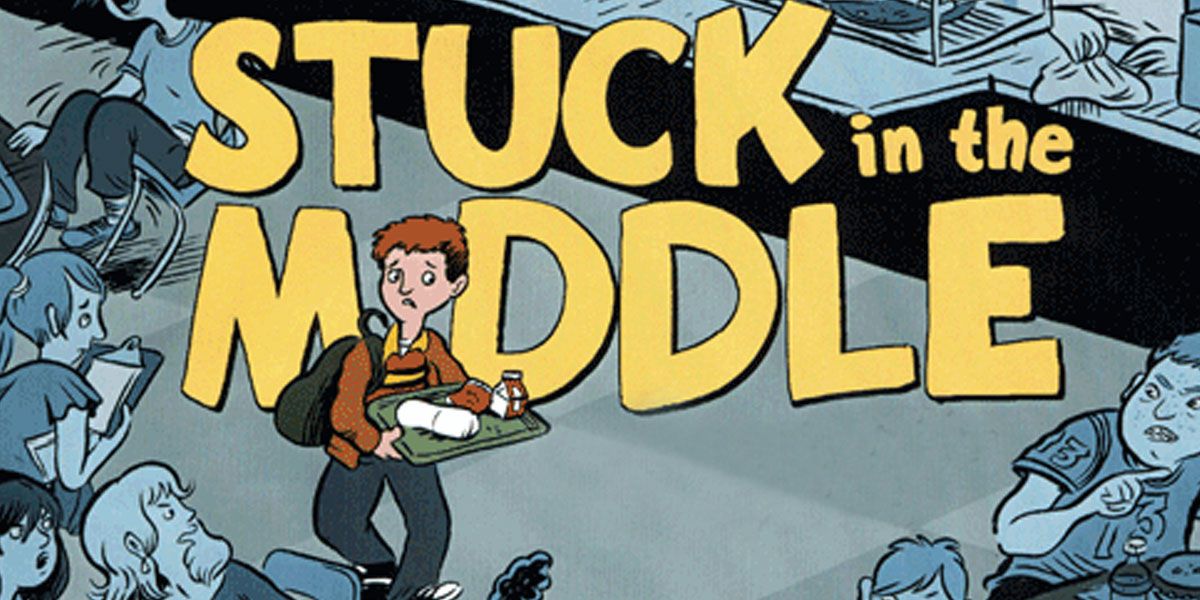A parent of a middle school student in Oklahoma didn't like what she saw in the comic book anthology "Stuck in the Middle," and has successfully petitioned to have it removed from the shelves of the school's library pending a full review. The Comic Book Legal Defense Fund (CBLDF) has subsequently contacted the school board in order to urge the administration to follow the official challenge policy. The CBLDF also challenged a local news report which incorrectly stated that the graphic novel was permanently banned, and another with unclear wording that could appear to claim that all graphic novels have been pulled from the library's circulation.
"We do have a district policy in place to review books that are called into question," The Mid Del School district said in a statement. "We are pulling the book to review with a committee that will include a parent, teacher, principal and library media specialist."
Released in 2008, the book features stories from Aaron Reiner, Dash Shaw, Lauren Weinstein, Joe Matt, Daniel Clowes and more, The books editor, Areil Schrag, also has an included story. The anthology's goal was to offer encouragement kids going through tough times to hang in there because things will get better. The book was lauded by the New York Times and Publishers Weekly, and chosen for the New York Public Library’s “Books for the Teen Age” shortly after its release.
RELATED: CBLDF Criticized For Support of Milo Yiannopoulos’ Publisher
The book has come under fire before, with a handful of school systems finding themselves reviewing the content in the comic due to community complaints. In each case, the school ultimately chose to keep it in circulation, though parental permission is needed in certain districts to check out the book. The CBLDF cited this in a 2011 case study, saying it hopes the book opens communication barriers between students and their families.
“In terms of foul language, sexual content, and teen smoking in this book, all the authors strove to present the teens and pre-teens in a realistic light. We may not like all of the decisions teenagers make, but if we sanitize their speech and behavior in our stories, our characters won’t be authentic. Real teens and pre-teens sometimes use these words and say and do these things. A book like this can present a good opportunity for dialogue between children and parents. Banning the book isn’t going to change children’s behavior or somehow save them from the hard truths of teenage life – I find it very hard to believe that a child would hear a swear word for the very first time in the book, or that he or she would be made aware that teenagers sometimes have sexual relationships or smoke cigarettes. The only thing that can make an impact in the way children act is communication, and this book provides a platform for that.”
The CBLDF is urging the Board of Education of the Mid-Del School System to adhere to it's own policy of forming a review committee to discuss material that has been challenged by the community.

